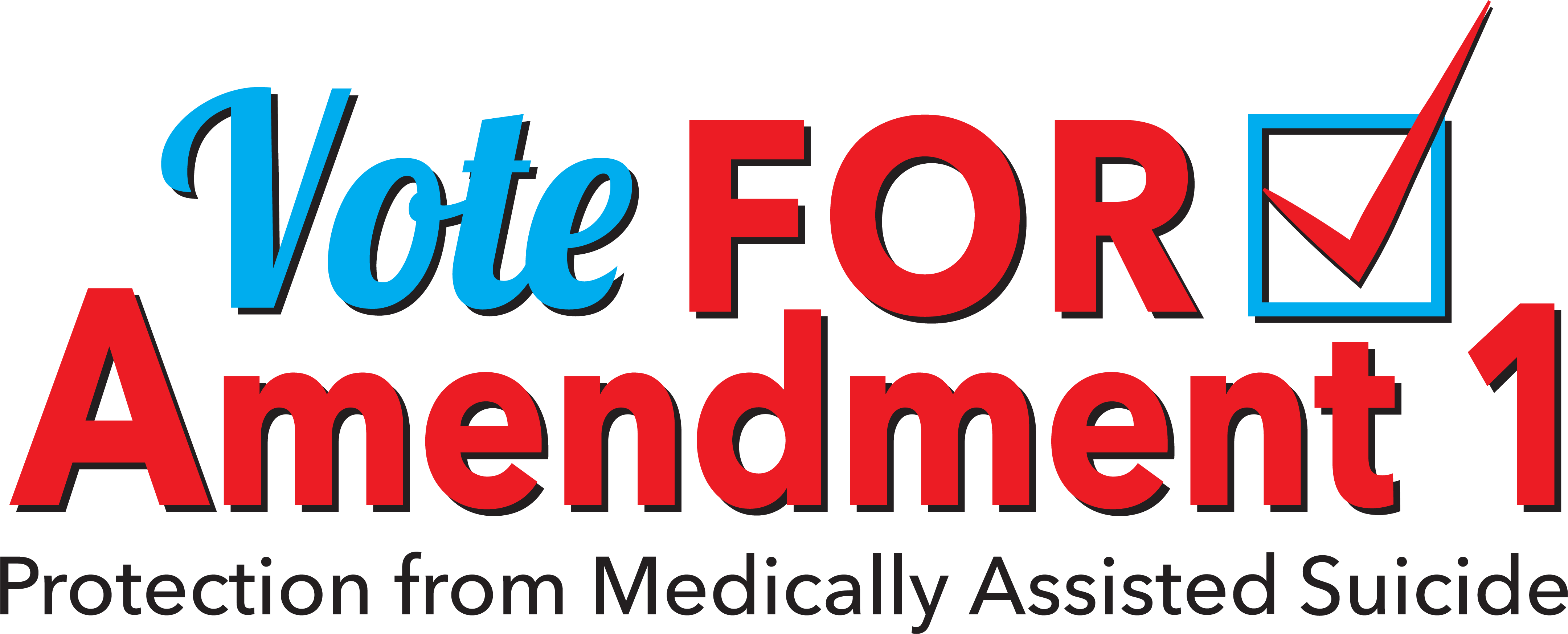How does medically assisted suicide destroy your autonomy, the ability to make your own decisons?
One of the greatest concerns is that autonomy will be violated and people pressured or coerced into killing themselves.
1. Insurance companies make the decision for you.
Medically assisted suicide will create perverse incentives for insurance providers and the financing of health care. It is an easy “fix” for healthcare system plagued with money problems. When insurance benefits vanish or patients are denied costly life-extending treatment, they will be steered toward assisted suicide.
2. Inheritor or caregiver can coerce you or your loved one to kill themselves. The lethal drug can be placed in the food without person’s knowledge.
An inheritor of a patient’s estate can witness a request for lethal drugs. With all enacted laws, there is no requirement that the request be made in-person, allowing an inheritor or abusive caregiver to make the request over the phone or by fax/email. There is no proper means to evaluate the patient using telehealth to request lethal drugs. Once the prescription is written, there is no supervision of the drugs. The inheritor or abusive caregiver can pick up the drugs and place them in the patient’s food without the patient’s knowledge or consent. The enacted laws make investigations of deaths very difficult. Coercion happens behind closed doors and assisted suicide laws enable concealment. Who would know it occurred? Elder abuse is a major health problem in the United States with federal estimates that one in ten elder persons are abused. Placing lethal drugs into the hands of abusers generates additional major risk to elder persons. With no supervision of drugs in the home, they are accessible and put family, friends and children at risk.
3. Depression or fear can affect your decision
Where medically assisted suicide laws are enacted it is rare for the patient to receive a psychological evaluation before a lethal prescription is subscribed. The decision to consider assisted suicide is often driven by fear and depression.
Depression can make you feel exhausted, worthless, helpless, and hopeless. It’s important to realize that these negative views don’t reflect reality which fades with treatment.
Life expectancy is never more than an estimate.
Doctors make mistakes.
A Mayo Clinic study found that more than one out of five patients, referred for a second opinion, may be incorrectly be diagnosed. Furthermore, many patients outlive doctors’ predictions of life expectancy
Click here to download “Canada’s Descent in to the Euthanasia Abyss” and “Horrendous Impact on Canadian Residents”
“Unbearable pain” IS NOT the main reason people request assisted suicide (AS).
The most common reasons are decreasing ability to participate in activities that make life enjoyable, loss of autonomy, and loss of dignity.
Legalization of assisted suicide is promoted as a means to protect individuals from pain and suffering. Yet, the 2021 Oregon annual report, similar to all previous years, lists the following reasons — all related to disability — why patients requested lethal drugs:
- Losing autonomy: 93.3%
- Less able to engage in activities making life enjoyable: 92.0%
- Loss of dignity: 68.1%
- Losing control of bodily functions: 47.1%
- Burden on family, friends/caregivers: 54.2%
- Inadequate pain control, or concern about it, registered only 26.9%.
The legal protections, so called “safeguards’, are ineffective.
Safeguards in assisted suicide are merely there to win legislators’ approval. Even if one were to accept an argument for medically assisted suicide on the basis of autonomy and compassion, one would be forced to conclude that neither value is sufficiently protected in laws that have been enacted in several states and other countries.
The most profound injustice of medically assisted suicide is that it violates human dignity and denies equality before the law.
Every Human Being Has Intrinsic Human Dignity and Worth. The American Creed, best articulated in the Declaration of Independence, holds it to be a self-evident truth “that all men are created equal, that they are endowed by their Creator with certain unalienable Rights, that among these are Life, Liberty and the pursuit of Happiness.”
This dignity does not depend on subjective evaluations of worth, even of self-worth, or on the ability to “contribute” to society.
The Law Must Respect Human Dignity and Equality Before the Law. The deepest injustice of medically assisted suicide, then, is that it treats some human lives as lacking dignity or worth—and therefore unworthy of the law’s protection. Obviously, this does not require that every medical procedure to extend life must be accepted.
As the Supreme Court held in a unanimous decision upholding New York’s prohibition on medically assisted suicide, there is a significant difference between allowing someone to die of natural causes and killing him.
Corrupts the patient-doctor relationship.
The Hippocratic Oath proclaims: “I will keep [the sick] from harm and injustice. I will neither give a deadly drug to anybody who asked for it, nor will I make a suggestion to this effect.” This is an essential precept for a flourishing civil society. No one, especially a doctor, should be permitted to kill intentionally, or assist in killing intentionally, an innocent neighbor.
Do not be misled by the claim that assisted suicide is painless, quick, and dignified.
A review of assisted suicide methods used in some U.S. states and European countries found “a relatively high incidence of vomiting (up to 10%), prolongation of death (up to 7 days), and re-awakening from coma (up to 4%).”

